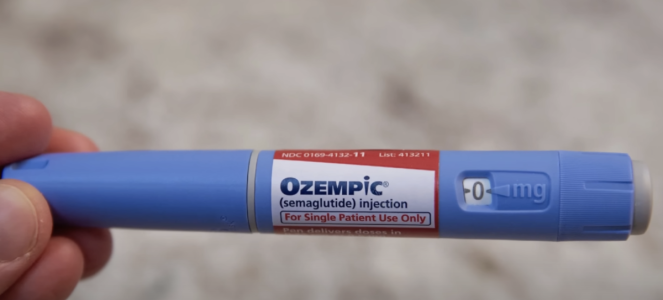Medicare may soon cover medications for weight loss—here’s what to know about the proposed program
By
Veronica E.
- Replies 3
If you've been hearing a lot about Ozempic, Wegovy, or Mounjaro lately, you're not alone.
These popular medications, originally created for diabetes, have gained attention for helping people lose significant weight and improve overall health.
Now, a proposed federal pilot program could bring big changes—making it possible for Medicare and Medicaid to cover these drugs for weight loss.
The program, first introduced under the Trump administration, would mark a major shift in how obesity is treated in the US.
For many older adults, this could open the door to new options for managing weight and related health conditions.

Why this is a big change
Until now, Medicare and Medicaid coverage for GLP-1 medications like Ozempic and Wegovy has mostly been limited to people with diabetes or specific heart conditions.
That left out many who might benefit from the weight-loss effects of these drugs.
But with new research showing their ability to reduce blood sugar, improve heart health, and help people lose up to 20% of their body weight, federal agencies are reconsidering their approach.
The US has more than 100 million adults affected by obesity, and finding long-term solutions has remained a national health priority.
This pilot program could signal a turning point in how obesity is treated—not just as a personal challenge, but as a chronic health issue that deserves medical support.
Also read: Nature’s way, so no prescription is needed: How diet can mimic the effects of Ozempic
What the pilot program includes
The proposal outlines a five-year pilot program that would begin in April 2026 for Medicaid and January 2027 for Medicare.
States and health plans would be allowed to opt in voluntarily to cover these medications for obesity management—not just diabetes.
The program will be administered by the Center for Medicare and Medicaid Innovation, which tests new ways to improve care and reduce costs.
If successful, the pilot could lead to permanent changes in coverage, giving millions more Americans access to medications that are currently out of reach for many due to price.
Also read: Medicare bills skyrocketing–uncover the shocking prices of Ozempic and Trulicity and how it affects you!
Cost concerns loom large
GLP-1 medications come with a hefty price tag.
In the US, Ozempic costs about $936 a month, and Wegovy costs over $1,300—compared to far lower prices in other countries.
The Congressional Budget Office estimates that expanding Medicare coverage could cost $35 billion between 2026 and 2034.
Some healthcare analysts worry this could strain government budgets and the healthcare system overall.
As Dr. Cynthia Cox from KFF noted, "$1,000 a month per person is a massive outlay.”
Still, many argue the long-term health savings from fewer hospital visits and improved chronic disease management could make it worthwhile.
Also read: Medicare price talks progress quietly as government targets costly prescriptions
Why doctors are optimistic
Despite the high cost, many physicians are encouraged by what these drugs can do.
In addition to promoting weight loss, GLP-1 medications lower blood pressure, improve cholesterol, and reduce the risk of stroke and heart disease.
Dr. Raj Dasgupta called these medications a major shift in thinking: “They’re helping move the conversation from ‘this is a personal failure’ to ‘this is a medical condition that deserves real treatment.’”
Doctors hope expanded access could reduce stigma and help more patients get the help they need.
Also read: Living with chronic pain? This woman’s unexpected breakthrough might be worth trying
Who could be affected
Currently, only 13 state Medicaid programs cover GLP-1 drugs for obesity.
Medicare only covers them for patients with related conditions.
If the pilot moves forward, coverage could expand to a much wider group—potentially reaching the nearly 70 million Americans on Medicaid and 65 million on Medicare.
That could make a huge difference in accessibility for older adults and low-income populations.

Also read: Is America taking too much medicine—and paying the price?
What’s next for the proposal
This program is still in the planning stages.
It will likely go through a public comment period, and details may change before anything is finalized.
However, the fact that it's even being considered shows how quickly the conversation around obesity and healthcare is evolving.
If you or someone in your family has struggled with weight and related health conditions, this could be a major opportunity.
It’s worth discussing with your doctor to see whether medications like Ozempic or Wegovy could be appropriate—and keeping an eye on developments as the pilot moves forward.
Read next: How a $500 inhaler cost led to a tragic asthma death—who's at risk?

Have you or someone you know used one of these medications? Do you think Medicare or Medicaid should help cover them? Are you concerned about the potential costs, or hopeful about the impact this could have on public health? We’d love to hear your thoughts in the comments below!
These popular medications, originally created for diabetes, have gained attention for helping people lose significant weight and improve overall health.
Now, a proposed federal pilot program could bring big changes—making it possible for Medicare and Medicaid to cover these drugs for weight loss.
The program, first introduced under the Trump administration, would mark a major shift in how obesity is treated in the US.
For many older adults, this could open the door to new options for managing weight and related health conditions.

Ozempic and similar medications may soon be covered by Medicare and Medicaid under a new federal pilot program. Image source: YouTube / Doctor Mike.
Why this is a big change
Until now, Medicare and Medicaid coverage for GLP-1 medications like Ozempic and Wegovy has mostly been limited to people with diabetes or specific heart conditions.
That left out many who might benefit from the weight-loss effects of these drugs.
But with new research showing their ability to reduce blood sugar, improve heart health, and help people lose up to 20% of their body weight, federal agencies are reconsidering their approach.
The US has more than 100 million adults affected by obesity, and finding long-term solutions has remained a national health priority.
This pilot program could signal a turning point in how obesity is treated—not just as a personal challenge, but as a chronic health issue that deserves medical support.
Also read: Nature’s way, so no prescription is needed: How diet can mimic the effects of Ozempic
What the pilot program includes
The proposal outlines a five-year pilot program that would begin in April 2026 for Medicaid and January 2027 for Medicare.
States and health plans would be allowed to opt in voluntarily to cover these medications for obesity management—not just diabetes.
The program will be administered by the Center for Medicare and Medicaid Innovation, which tests new ways to improve care and reduce costs.
If successful, the pilot could lead to permanent changes in coverage, giving millions more Americans access to medications that are currently out of reach for many due to price.
Cost concerns loom large
GLP-1 medications come with a hefty price tag.
In the US, Ozempic costs about $936 a month, and Wegovy costs over $1,300—compared to far lower prices in other countries.
The Congressional Budget Office estimates that expanding Medicare coverage could cost $35 billion between 2026 and 2034.
Some healthcare analysts worry this could strain government budgets and the healthcare system overall.
As Dr. Cynthia Cox from KFF noted, "$1,000 a month per person is a massive outlay.”
Still, many argue the long-term health savings from fewer hospital visits and improved chronic disease management could make it worthwhile.
Also read: Medicare price talks progress quietly as government targets costly prescriptions
Why doctors are optimistic
Despite the high cost, many physicians are encouraged by what these drugs can do.
In addition to promoting weight loss, GLP-1 medications lower blood pressure, improve cholesterol, and reduce the risk of stroke and heart disease.
Dr. Raj Dasgupta called these medications a major shift in thinking: “They’re helping move the conversation from ‘this is a personal failure’ to ‘this is a medical condition that deserves real treatment.’”
Doctors hope expanded access could reduce stigma and help more patients get the help they need.
Also read: Living with chronic pain? This woman’s unexpected breakthrough might be worth trying
Who could be affected
Currently, only 13 state Medicaid programs cover GLP-1 drugs for obesity.
Medicare only covers them for patients with related conditions.
If the pilot moves forward, coverage could expand to a much wider group—potentially reaching the nearly 70 million Americans on Medicaid and 65 million on Medicare.
That could make a huge difference in accessibility for older adults and low-income populations.

Weight loss medications like Ozempic are reshaping how obesity is treated in the US. Image source: Pexels / Ketut Subiyanto.
Also read: Is America taking too much medicine—and paying the price?
What’s next for the proposal
This program is still in the planning stages.
It will likely go through a public comment period, and details may change before anything is finalized.
However, the fact that it's even being considered shows how quickly the conversation around obesity and healthcare is evolving.
If you or someone in your family has struggled with weight and related health conditions, this could be a major opportunity.
It’s worth discussing with your doctor to see whether medications like Ozempic or Wegovy could be appropriate—and keeping an eye on developments as the pilot moves forward.
Read next: How a $500 inhaler cost led to a tragic asthma death—who's at risk?
Key Takeaways
- A proposed federal pilot program could allow Medicare and Medicaid to cover GLP-1 weight-loss drugs like Ozempic and Wegovy for obesity, not just diabetes.
- The voluntary five-year program is expected to begin in 2026 for Medicaid and 2027 for Medicare, if approved.
- While doctors support broader access, experts warn that the high cost—up to $1,300 a month—could strain the healthcare system.
- If the program succeeds, millions of Americans, including seniors and low-income patients, may gain access to these powerful medications.
Have you or someone you know used one of these medications? Do you think Medicare or Medicaid should help cover them? Are you concerned about the potential costs, or hopeful about the impact this could have on public health? We’d love to hear your thoughts in the comments below!






